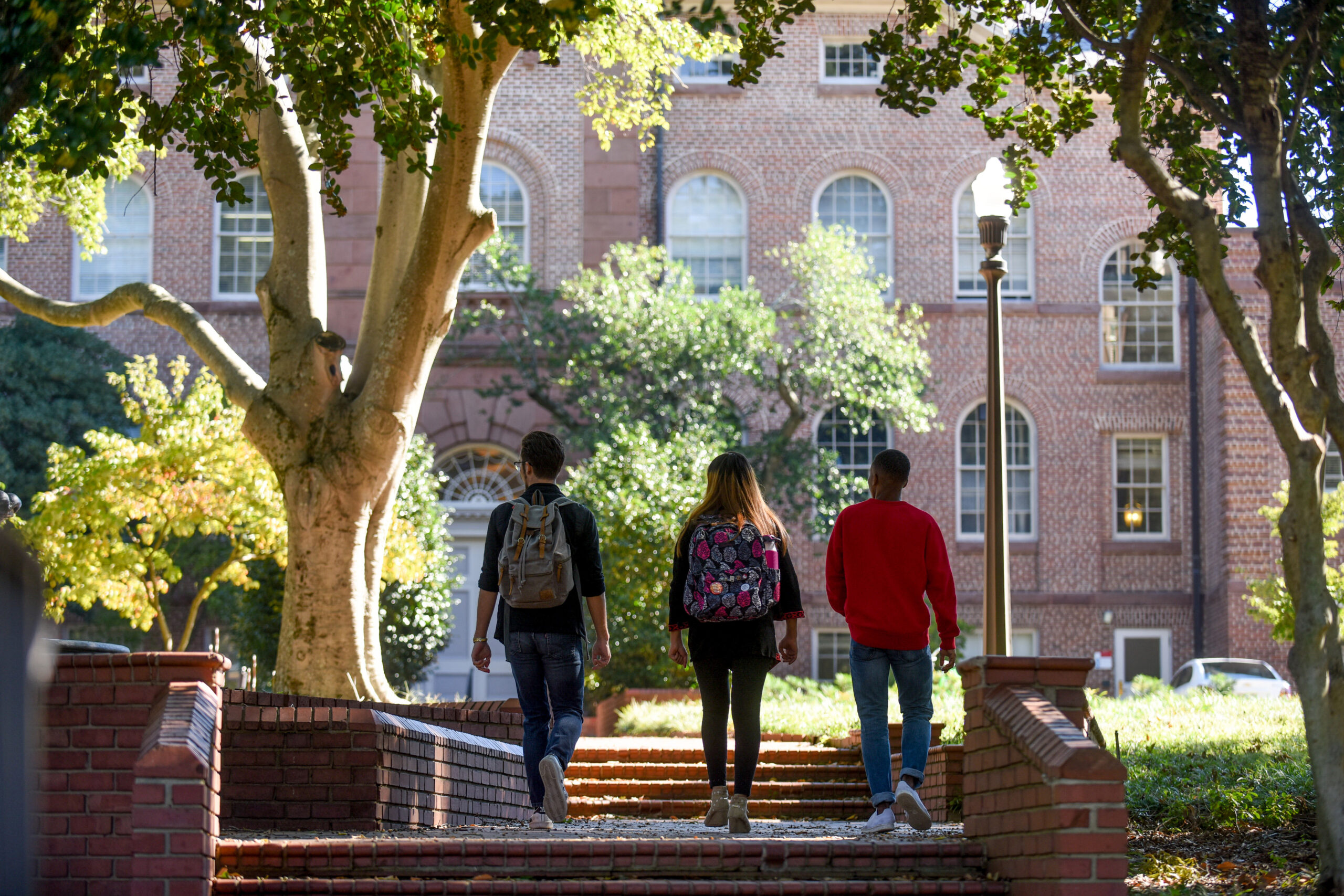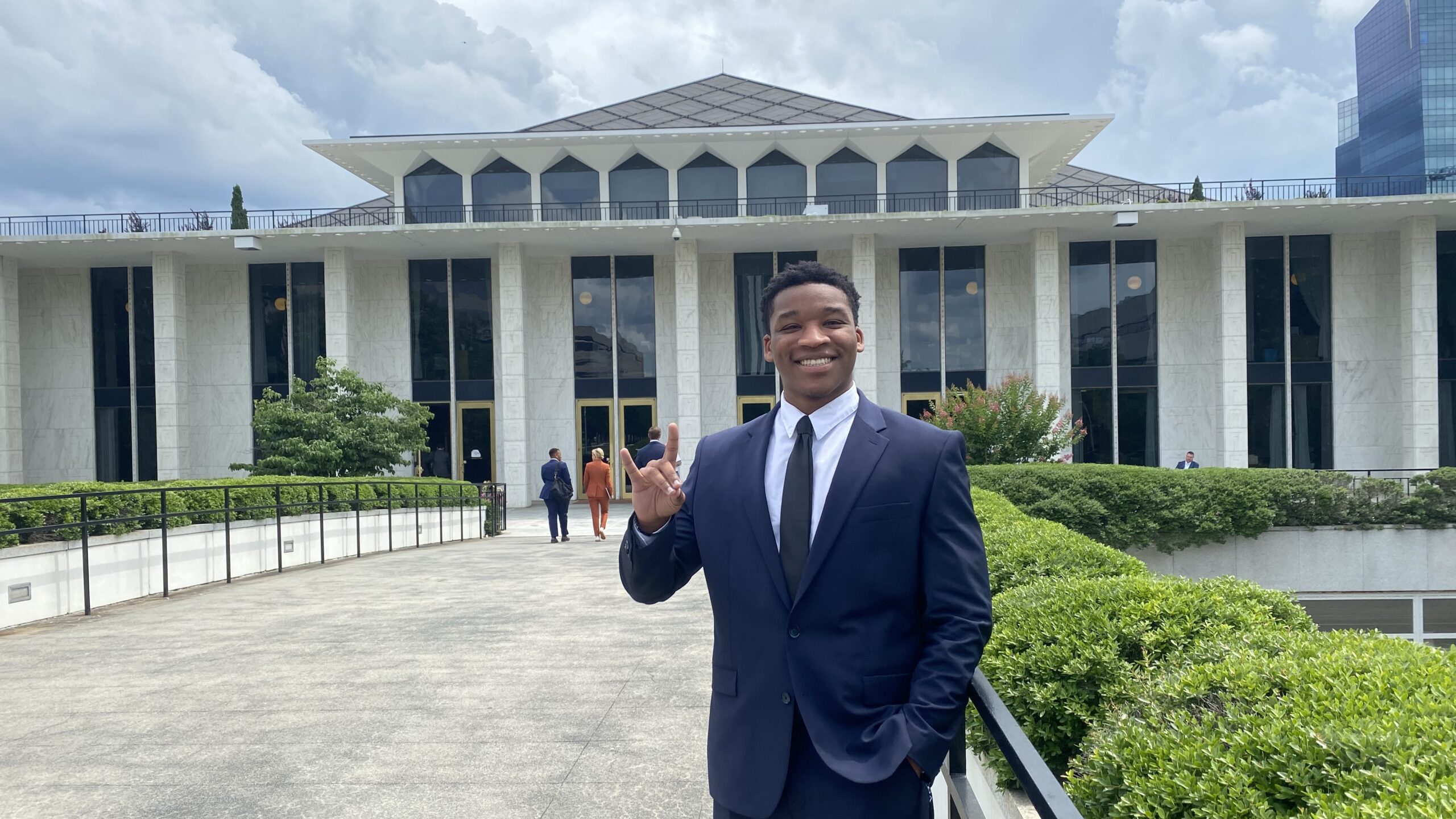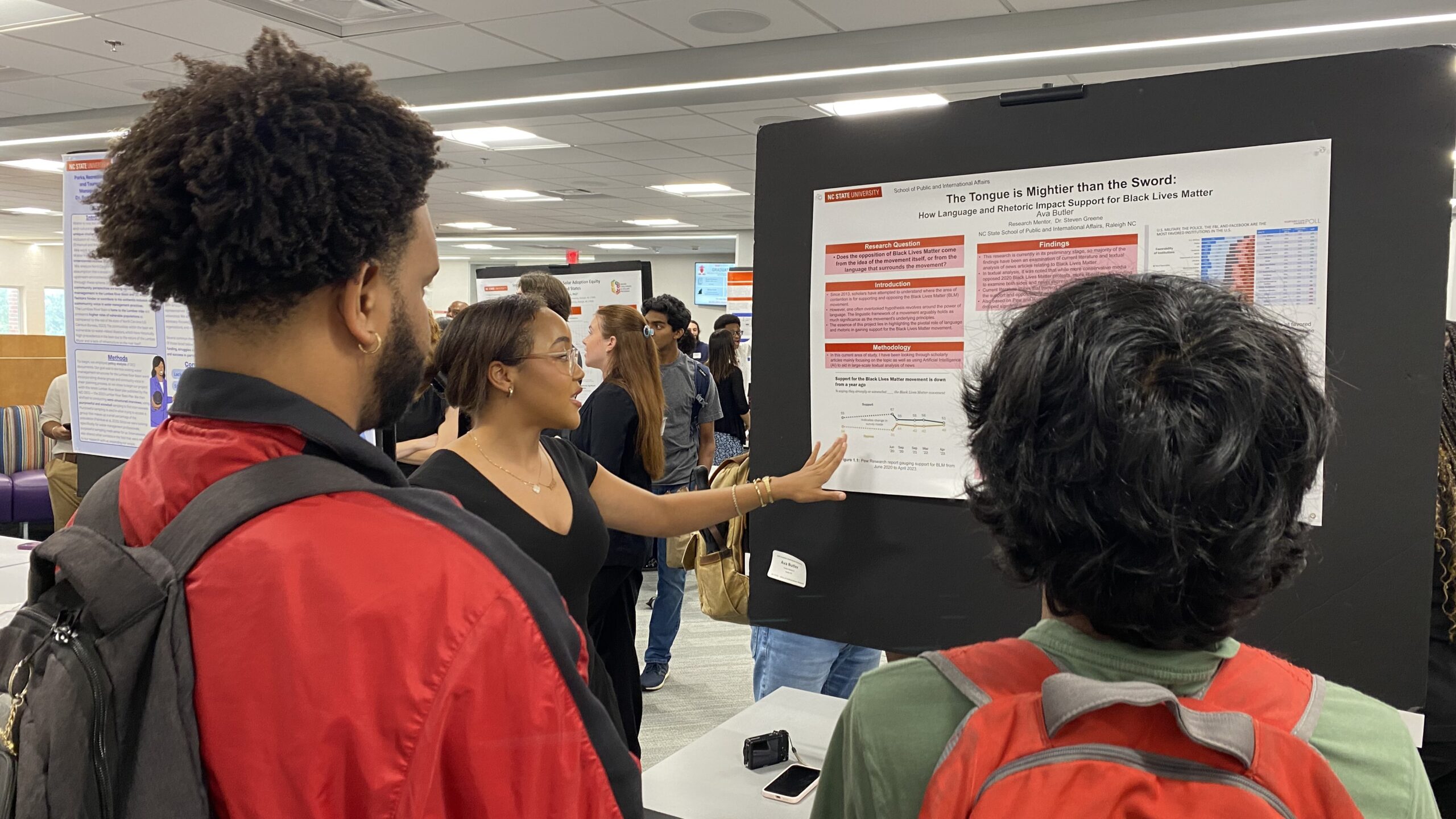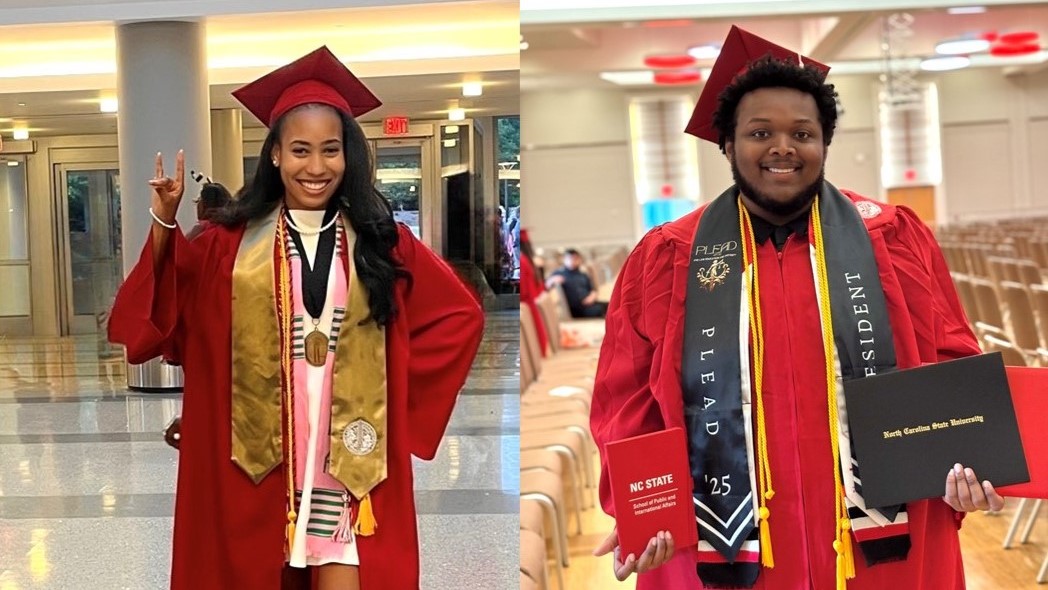An internship is an integral part of the college experience and an important part of the degree program within the School of Public and International Affairs. By working in a pre-professional position that provides intentional learning objectives, students apply classroom knowledge to real-world situations, develop workplace skills and a professional network.
“Internship opportunities are crucial for students who are interested in the practical application of political science, whether they plan to pursue a legal career, nonprofit management, or government and policy work,” said Associate Professor Jim Zink. “Just as important, it can also give students a real glimpse into how the profession actually operates and put them in a better position to judge whether that career path is really for them.” Dr. Zink teaches PS 391, Internship in Political Science, a professionalization course for students who obtain academic credit during their work experience.
“With many federal, state and local government offices in our area, as well as lobbying, non-profit and issue advocacy groups, there are a wealth of internship opportunities in Raleigh,” added Michael Struett, Professor and Chair of the Department of Political Science. Summer is also a great time to complete a full-time internship in another city or overseas. The department is also fortunate to be able to offer donor funded scholarships that help students meet the extra costs associated with unpaid internships or those in Washington, D.C..
Meet four political science majors who completed their summer internships and explored a variety of career paths with the generous support of alumni-funded internship scholarships.
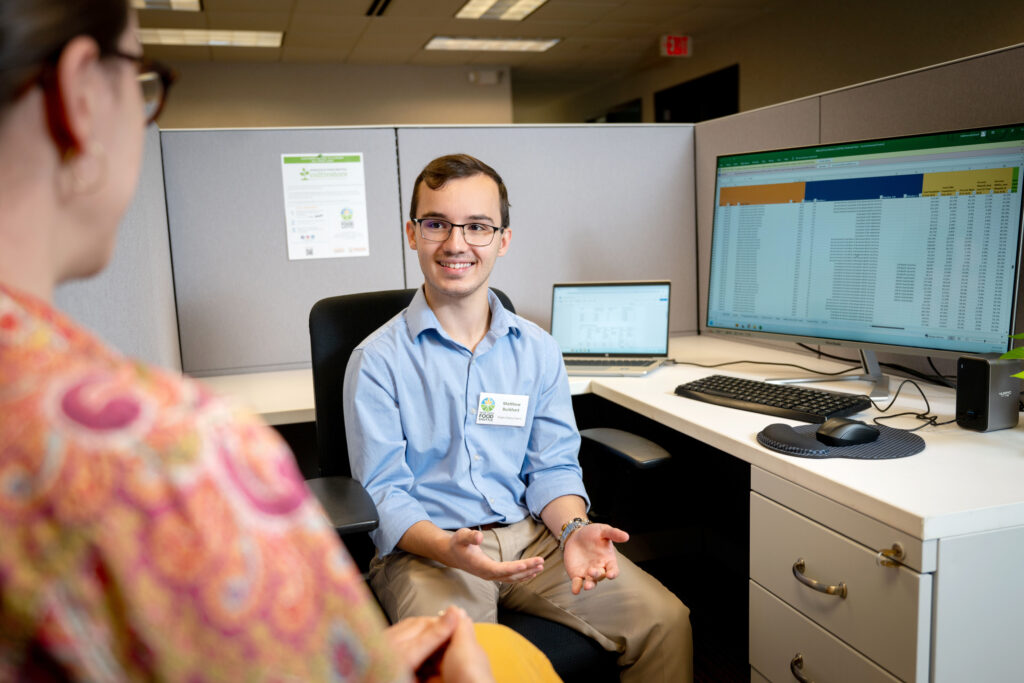
Matthew Burkhart (‘26)
Internship: Inter-Faith Food Shuttle
Scholarship: Robert Gibbs Public Service Internship Scholarship
Degree program: B.A. in Political Science, B.A. in English
What did you do during your internship?
As a public policy intern, I compiled demographic data on food insecurity in our service area for use with policymakers and identified key decision makers in government with potential impact on public policy related to food insecurity and created a power mapping presentation with individualized approaches to each key decision maker. The position included a lot of communication work. I assisted in drafting materials advocating for policy priorities, including newsletter items, blog posts and press releases. I also sat in on an NC State Legislature session on the state budget readjustment, and kept up with relevant bills and news relating to food insecurity policy, such as the farm bill.
What was the most valuable thing you learned during your internship?
Learning how to work in a professional office environment has been valuable. My internship was in an office building and I had my own cubicle. One of the most difficult adjustments to any sort of work I’ve done previously was learning how to focus and work in a quiet office all day, as well as learning how to pace myself to complete everything on time when news and policy changes just broke.
How has this opportunity impacted your degree program and future plans?
My coursework in public policy provided a solid foundation in understanding the policy process. However, this internship significantly enhanced that knowledge by giving me practical, hands-on experience with watching the North Carolina legislature and its committees. It allowed me to see the policy process in action and how legislative decisions are made, deepening my comprehension of what I had studied in the classroom.
This internship helped me better conceptualize what working in the political science field looks like, especially through policy in areas beyond security policy and partisan politics. It has reinforced my desire to focus on impactful issues, particularly agricultural policy and public welfare, guiding my future career path toward making a tangible difference in these fields.
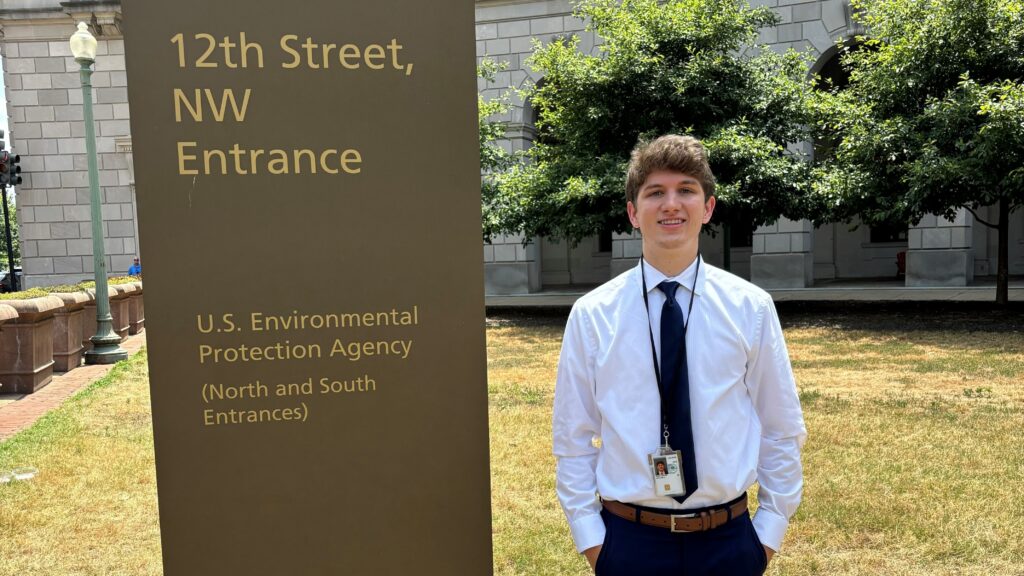
Will Vuncannon (‘24)
Internship: U.S. Environmental Protection Agency
Scholarship: Sandra Latta Washington D.C. Internship Scholarship
Degree program: B.A. Political Science, B.A. Religious Studies, minor in environmental science
What did you do this internship?
I interned in the Communications Branch of the Office of Chemical Safety and Pollution Prevention at EPA in Washington, DC. In this position, I drafted daily newsletters that were sent to various offices within the agency highlighting important updates regarding pesticide and PFAS regulations, pollution prevention, climate change, and other topics relevant to EPA. Additionally, I helped manage and respond to correspondence about chemical safety and pollution prevention that has been submitted to the agency.
What was the most valuable thing you learned during your internship?
I learned about the many different ways that EPA is working to protect our planet. For some, this work consists of field research and data whereas for others, it may be advocacy. The team I interned with works on both internal and external correspondence. This allows the public and offices within EPA to stay up to date on the various types of work being done at the Agency. I have enjoyed being a part of the behind the scenes work that goes on at EPA to protect human health and the environment. Being able to work at the headquarters of the EPA in D.C. has been an incredible and memorable experience. I have greatly appreciated the Agency’s welcoming and inclusive culture as well as the administration’s dedication to environmental justice and clean energy.
How has this experience affected you’ll do next?
This internship experience confirmed my passion for environmental research and advocacy. I plan to continue advocating for environmental justice beyond graduation and have even begun looking into graduate programs in the fields of environmental science and environmental policy.
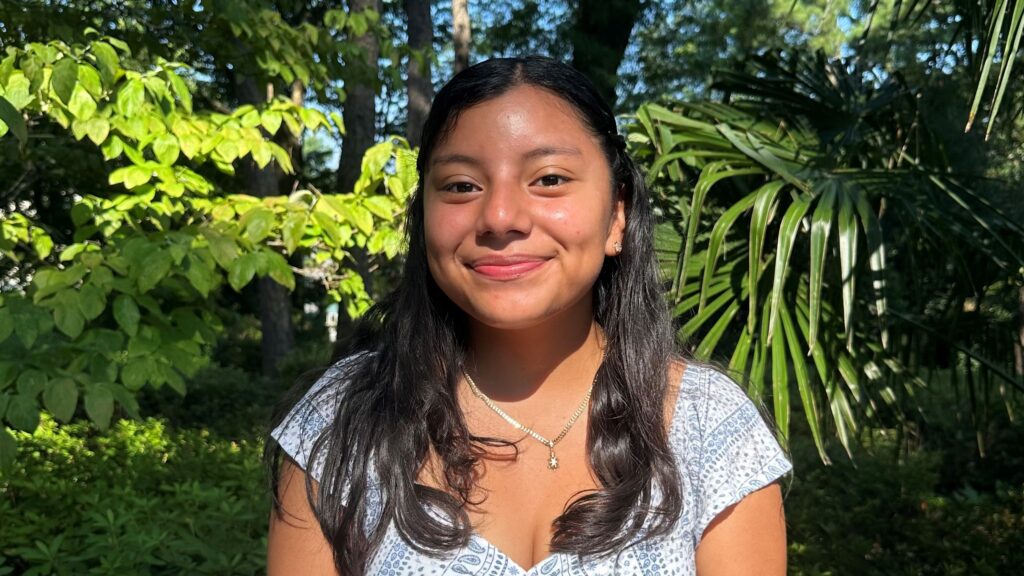
Lenny Aguilar-Mayoral (‘25)
Internship: United States Attorney’s Office – Eastern District of North Carolina
Scholarship: Robert Gibbs Public Service Internship Scholarship
Degree: B.A Political Science (concentration in law and justice), B.A in Criminology, minors in forensic science and Spanish
What did you do during this internship?
I worked with the victim witness advocate and coordinators to assist them with daily administrative tasks and events. I would sit in on calls with victims, answer victims’ emails, and send out victim witness letters. I also helped plan and organize events such as the Human Trafficking Awareness event for local law enforcement and support agencies. The event was aimed to bring awareness to the signs and indicators of sex and labor trafficking in the U.S., specifically in North Carolina. Human trafficking is one of the top priorities for the U.S. Attorney and the office. I also attended court with the AUSA’s and the victim witness staff and worked on the next event in October which will be for Domestic Violence Awareness Month.
What was the most valuable thing you learned during your internship?
I have loved my experience in the U.S. Attorney’s Office. I learned a great deal about witness services and labor trafficking. One of the most valuable skills I developed during this internship is networking. I had the opportunity to interact and network with so many legal professionals, including attorneys, legal assistants, and other interns. They have provided me with wonderful insight into the law school process, going to court, and what it is like to be an attorney. This internship definitely pushed me to be more open and talk to others about my goals and what I want to do.
How has this opportunity impacted your degree program and future plans?
My coursework in my political science and criminology provided me with great academic knowledge that has supported me throughout my internship. Getting hands on experience has also enhanced my knowledge of the legal and criminal justice system. This internship did confirm my passion for this type of work and enhanced my interest in becoming an attorney. The Gibbs Internship Scholarship provided me with great support during my internship and I would not have been able to support myself and have a successful internship if not for this funding.

Emily White (‘26)
Internship: North Carolina Voters Project (NCVP)
Scholarship: Susan W. Rabon Scholarship
Degree: B.A. Political Science (concentration in public policy), minor in English rhetoric, writing, and profession
What did you do during this internship?
I am a special projects intern for NCVP meaning I fill multiple different roles in the facilitation of different outreach projects. NCVP is a nonprofit, nonpartisan effort to promote civil engagement and voter registration. This summer, I have attended democratic webinars to look for new outreach opportunities, attended community events where we set up registration booths, and worked with our most recent project partner, GASP (a women’s group) who we provided with NCVP volunteer engagement and voter education materials.
What have you liked most about the experience?
I have really enjoyed this project, its mission, and working with other members of the volunteer community. NCVP’s founder is also an attorney and started the organization as his own labor of love to better our state and to give people a voice in their political system, despite what they believe, which I found very admirable and reminded me the importance of pouring yourself into projects that you truly are passionate about. Because of this experience I am considering adding the nonprofit minor to my degree program.
What advice do you have for students considering a similar internship experience?
Network and read your email! I met the president of NCVP at the Democratic Summit in October because I was volunteering for the Governor (another opportunity I found through my department newsletter) and he gave me his contact information and we kept in touch. When NCVP had an internship opportunity, they reached out to see if I was interested. My advice is to read your email, and never underestimate the value of volunteer opportunities or unpaid internships because networking and making connections is everything! Also ask about resources. It would have been impossible for me to be able to dedicate so much time to this internship without the support of the Rabon Internship Scholarship.
The Department of Political Science greatly appreciates the generous support of student internship experiences from our alumni. Internship scholarship applications and deadlines are posted in the department newsletter throughout the year. For more information about internship funding contact Dr. William Boettcher.
